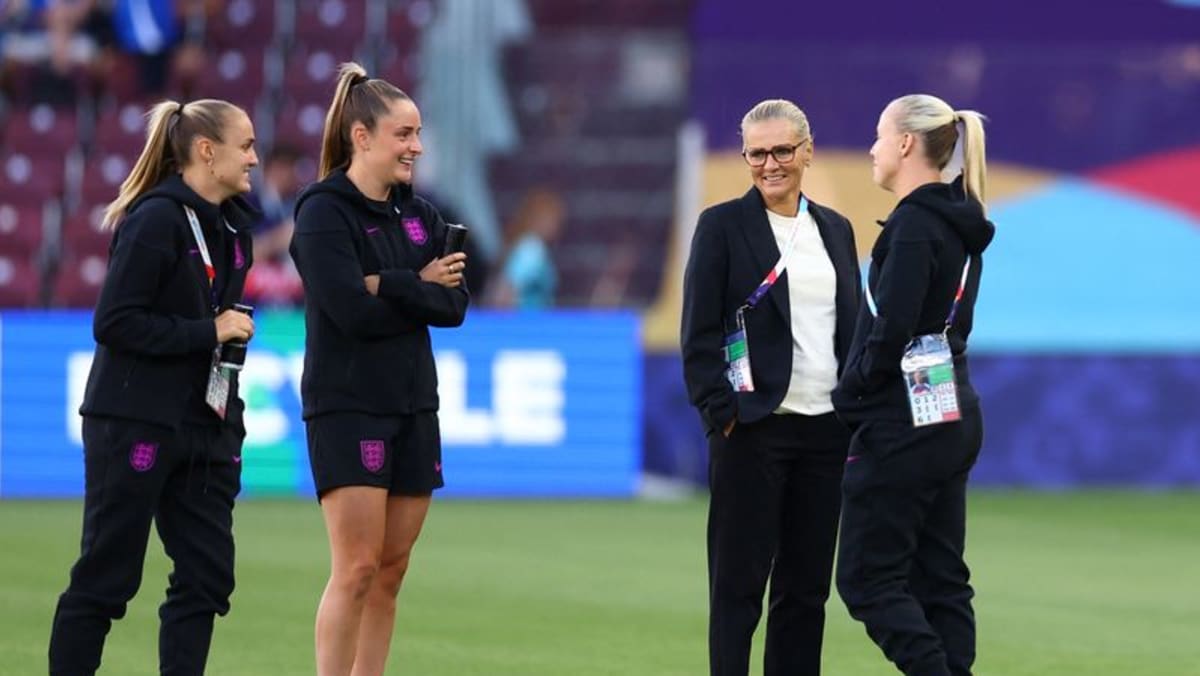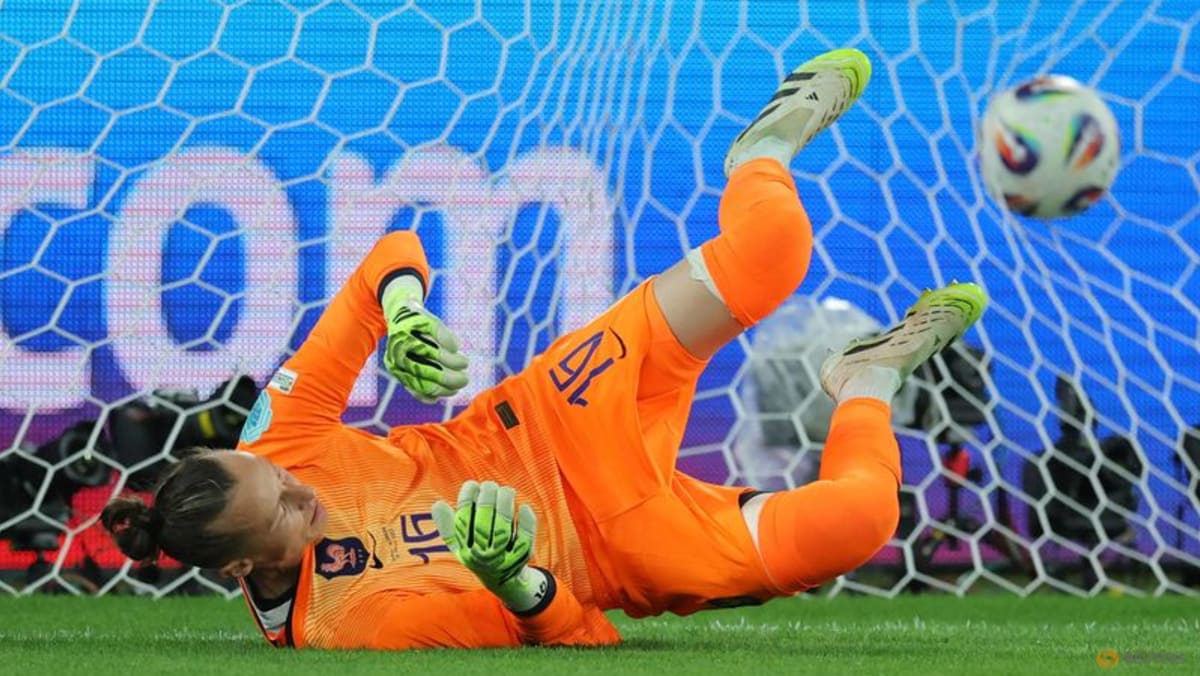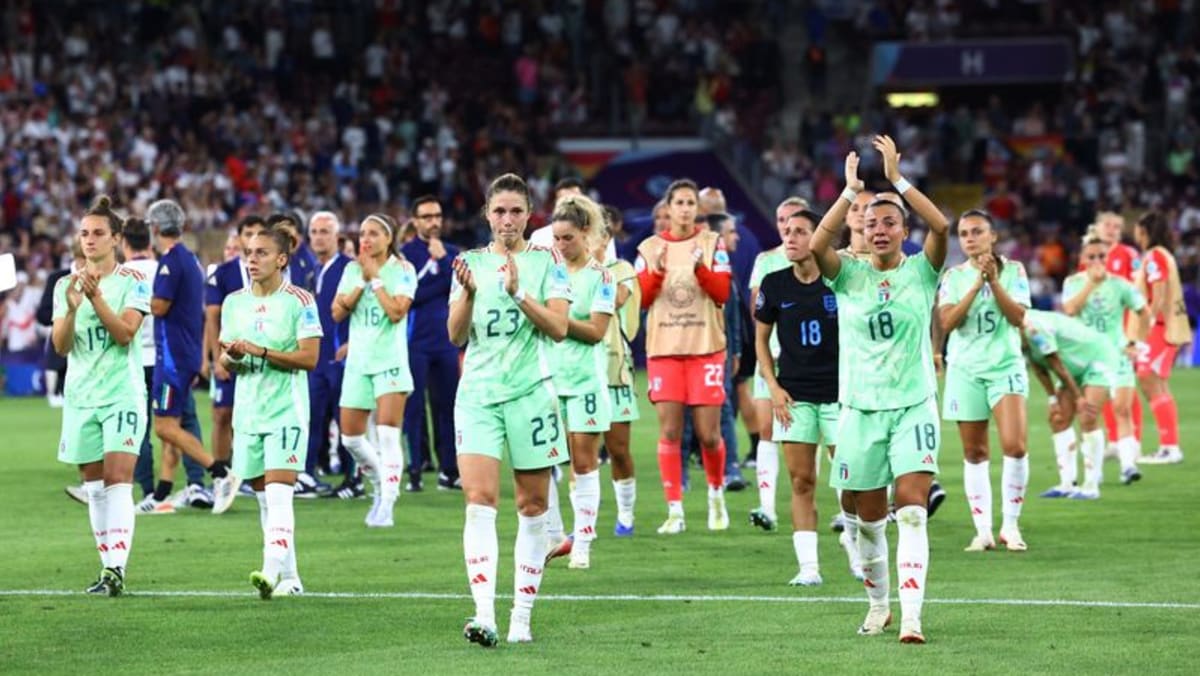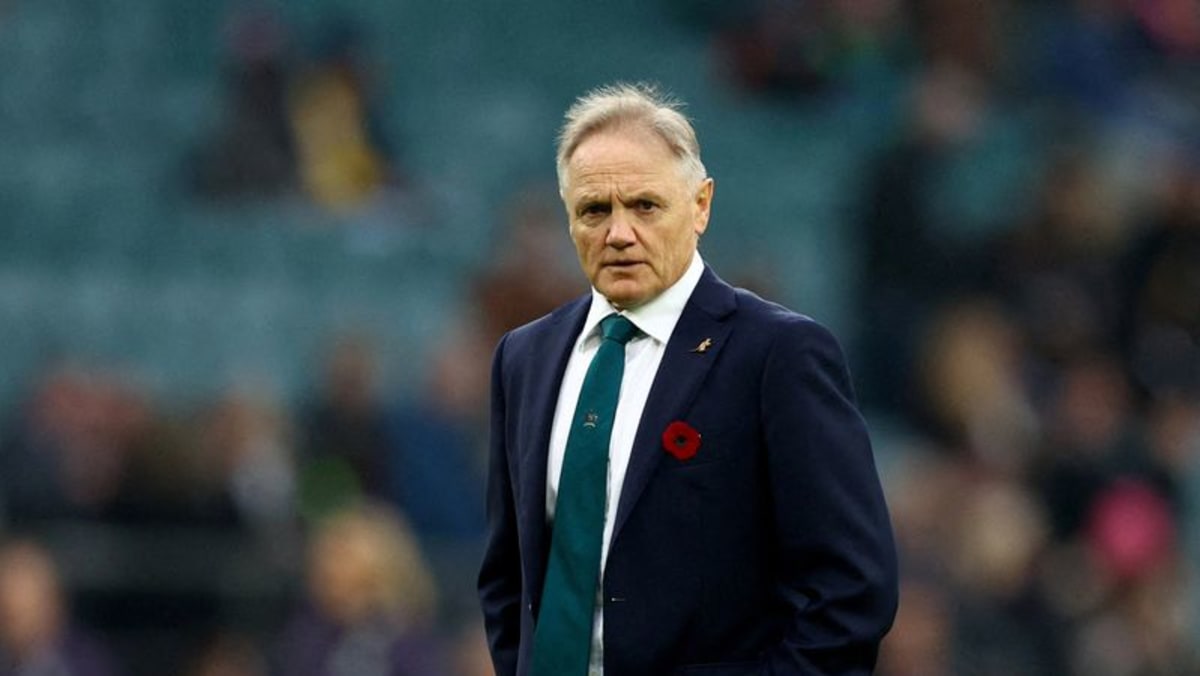LONDON :An unprecedented third successive major final appearance engineered by a series of extraordinary comebacks and a manager similarly lauded and hammered at the same time – there is a familiar feel about England at the Women’s Euros.
Tuesday’s 2-1 victory over Italy, secured via a last-gasp equaliser in normal time then a winner two minutes from the end of extra time, propelled the defending champions into a final against either Germany, who they beat to lift the title in 2022, or Spain, who they lost to in the World Cup final two years ago.
Under the guidance of the extraordinarily successful coach Sarina Wiegman, England have reached an unprecedented level of consistency, yet, far from lauding the Dutchwoman’s influence, there is an undercurrent of feeling that they have somehow made it this far this time despite, not because, of her decisions.
Wiegman has been steadfast – some say stubborn – in her selection approach during the tournament despite England’s starting team often failing to spark.
They trailed Sweden 2-0 in the quarter-finals, looking toothless, until finally she turned to the bench and substitute Michelle Agyemang rescued the match, which England eventually won via a crazy 14-shot penalty shootout.
After making only one change to the starting lineup – and that perhaps more due to the racist abuse swirling around Jess Carter than her shaky performance – Wiegman watched in her usual motionless style as hot favourites England were outrun and outplayed by Italy for an hour on Tuesday.
Eventually she turned to her bench, throwing on strikers Agyemang and Aggie Beever-Jones with five minutes to go, having introduced 2022 hero Chloe Kelly after 77 minutes.
Agyemang, 19, was the saviour again as she equalised deep into stoppage time and, with a penalty shootout that England would definitely not have wanted after missing four of their seven attempts in the quarter-final, Kelly then won it with two minutes to spare.
Wiegman said her overwhelming emotion was relief and praised the quality and energy of her substitutes – which of course begged the question of why she took so long to bring them on.
FAMILIAR FEEL
It all had a very familiar feel after Gareth Southgate was both lauded and vilified during England men’s run to the Euro 2024 final having also reached the 2020 final and the semi-finals of the 2018 World Cup.
Southgate was widely criticised for his failure to react to changes made by Italy and Croatia in those earlier defeats, but, like Wiegman, the louder the outside noise, the more he dug his feet in.
He reached a nadir in the Euro 2024 last 16 game against Slovakia, when, trailing 1-0 having barely managed a shot on goal all night, he waited until the fourth minute of stoppage time to introduce striker Ivan Toney, before Jude Bellingham eventually equalised and England won in extra-time.
It was a similar story in the semi-finals before England won on penalties and in the final he waited until the 70th minute to bring on Cole Palmer, the team’s most dangerous player whenever he got on the pitch, who immediately equalised before England eventually lost 2-1.
Southgate had turned a desperately poor England team into a brilliantly consistent one, but rather than celebrate that “success”, there were plenty of critics ready to claim that his cautiousness robbed the country of the chance of glory.
Wiegman already has the Euro 2022 trophy in the cabinet – as well as the 2017 title with the Netherlands – and there are of course many other coaches now watching from home who would give their right arm to be in her place heading into the final.
Yet, just as with Southgate and even with her vast experience and glittering CV, should England be trailing again on Sunday, she surely needs to find it in herself to loosen the stays and not rely on another last-minute rescue act.













